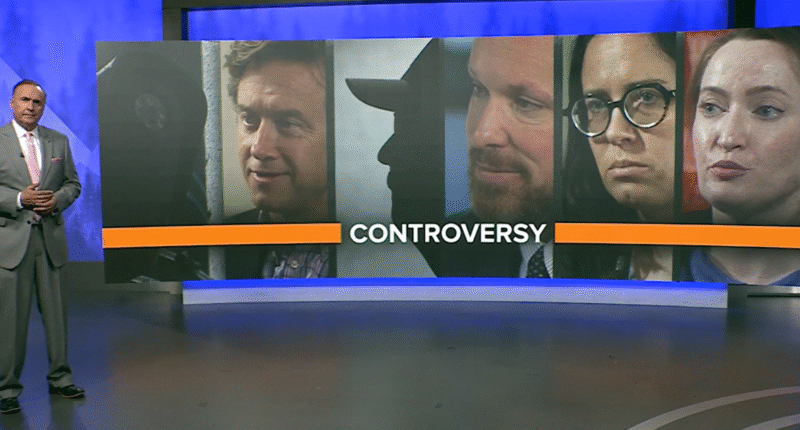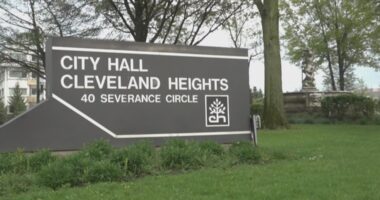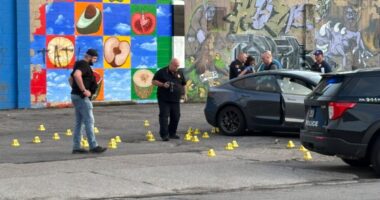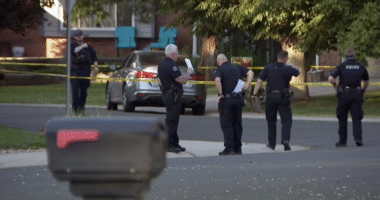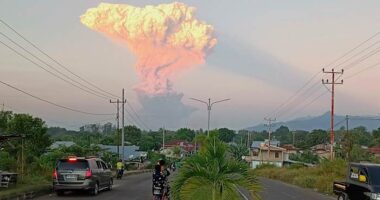When the Denver City Council decided to turn down a contract extension with the company managing automated license plate readers throughout the city, a seasoned Denver police officer was taken aback by the decision.
Expressing surprise, the officer, who remains anonymous for speaking to Denver7 Investigates due to lacking authorization to engage with the media, emphasized, “It’s one of the best tools – if not the best tool – we’ve had in a long time.”
While law enforcement officials highlight the efficacy of these license plate readers – which are cameras that capture over two million images at Denver intersections every month – in aiding the apprehension of criminals, there are concerns raised by others regarding civil liberties and the absence of measures to prevent potential misuse of the data.
“Right now, I think the risks outweigh the rewards,” Denver City Councilperson Sarah Parady said. “It’s not that this can’t be a useful tool but that’s the thing about mass surveillance — it’s always a useful tool. If we simply attached a GPS device to every Denverite, we would solve most crimes, but we don’t do that because we have constitutional rights and norms around surveillance.”
And while the future of license plate readers in Denver remains in limbo, Mayor Mike Johnston is looking for a compromise that allows police to keep a valuable tool, while adding fail-safes to make sure the data captured is secure and properly used.
“We think there’s a way to work collaboratively with other law enforcement and still make sure we can protect privacy,” Johnston said. “We are committed to protecting privacy in this city.”
In the meantime, Denver City Council has agreed to launch a pilot program that will keep license plate readers in the city for the rest of the year and a task force is examining the broader issues of privacy versus policing.

Denver7
License plate readers in Denver
License plate readers, also called LPRs, were first installed in Denver in 2024 and the cameras are currently mounted at 111 different intersections across the city.
According to city records, the cameras have helped police with key evidence in nine homicide investigations and 19 violent gun crimes. They have helped recover 180 stolen vehicles and at least 29 firearms. The city also credits the license plate readers with helping decrease auto theft by 40% last year in Denver.
“It is used to locate and arrest criminals,” the anonymous Denver police officer said. “That’s it. Criminals.”
RELATED: Colorado communities give the green light to license plate readers, advocates want to pump the brakes
Currently, the data — consisting of raw license plates and locations — can be accessed by Denver police along with 80 different law enforcement agencies and four FBI agents in Colorado.
Some members of Denver City Council, including Parady, have raised concerns that this database could be used by federal agents to monitor or identify undocumented immigrants.
Denver City Council slows down
Last month, Denver City Council was voting on whether or not to renew a $666,000 contract with the company that installed the cameras, Flock Group, Inc. They voted 12-0 against renewing the contract.
Parady was outspoken against the contract, describing license plate readers as a tool of mass surveillance. She told Denver7 Investigates that the vast majority of crimes are not solved by these cameras.
The American Civil Liberties Union in Colorado agrees with Denver City Council in slowing down the process and asking for public transparency to protect citizens from potential misuse.
“Any sort of dragnet surveillance technology products need the utmost scrutiny,” ACLU Colorado Director of Advocacy Jen Samano said. “I think we can all agree on the outcomes of safety and solving crimes, but how we get there can’t be overlooked. This puts at risk our fundamental constitutional rights if it’s not done properly.”

Denver7
Eddie Mejia, a Denver police sergeant and member of the Denver Police Protection Association union board, said he understands the concerns, but believes if the license plate readers are eliminated, it will be easier for criminals to commit crimes and more difficult to look for perpetrators.
“We understand there’s privacy concerns about a lot of these things, but you don’t get rid of privacy concerns by just tearing out the system,” Mejia said.
Denver Mayor Johnston is looking to find a balance, but said he doesn’t believe there is evidence or specific cases where license plate readers have been misused to identify and locate undocumented immigrants. But he did urge the council to vote against renewing the contract so the city could continue looking into the issue.
“I think from our side, we’re clear about how license plate readers help reduce crime in the city,” Johnston said. “They are effective at stopping auto theft, they’re effective at tracing violent criminals. We want to keep doing that. We plan to keep doing that.”
So, while discussion on the issue will continue, compromise remains on the table.
“I get their concerns on the privacy side and all that, but when you really know how they work and what they’re used for and how they are used, I think they would agree it would be crazy to lose these,” the anonymous officer said.
“You need to understand that people really care about privacy as much as they care about safety,” Samano said. “And that this time more than ever it is important to act with caution and to focus on constitutional concerns, not flashy technology.”
In the end, Johnston does not see license plate readers going away.
“We want to keep those cameras on,” he said. “We want to keep the streets safe and we’re going to do whatever it takes to make that happen.”

Denver7
Got a tip? Send it to the Denver7 Investigates team
Use the form below to send us a comment or story idea you’d like the Denver7 Investigates team to check out. You can also email investigates@Denver7.com or call our newsroom at 303-832-0200.
